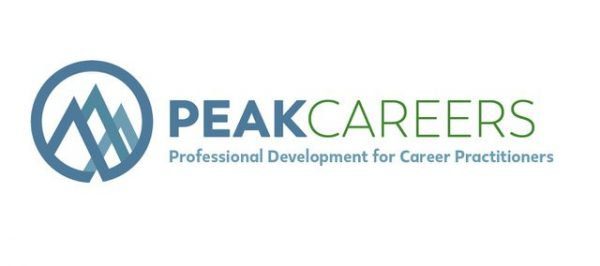
Journaling Survey Results from career counselors / coaches /career services providers
May 2017
Roughly 84 respondents
PERSONAL JOURNALING
- How many people do personal journaling?
Yes- 23
No – 29
Occasionally – 32
2. Journal on Theme or Free Style?
Free Style – 37
Both – 3
Theme – 12
n/a or skipped – 28
- Comments:
Both. Start off with Things I am Grateful For and Inspiring Moments (inspiring me and how I hope I inspired another) then Freestyle
Gratitude journaling, self reflection, business planning, affirmations.
Freestyle, I would like to incorporate more creativity and I have printed off articles that help one do that, I simply have not found the time to give it a try.
Free style. I try to write three pages each morning. Themes usually emerge. The idea is to simply write what comes into my head, as a way to clear my head. The first 15 minutes are usually pretty messy and not too meaningful. After that I end up seeming to explore a topic more fully. It usually centers on what I want to do on a project OR an analysis of something that has happened in the past. It is very cathartic and takes about 40 minutes.
I do not get it in every morning, but miss it when I don’t.
I use both freehand writing and themes because journaling is all about what you are feeling and is not meant to be so structured that you do not have flexibility within your thoughts, your time or your theme.
CLIENT JOURNALING
- Assign clients journaling assignments?
Yes- 15
No – 48
Occasionally – 20
- What prompts or questions do you use?
I don’t so much assign as I do suggest. I tell clients and workshop participants it can be useful to carry around a notebook to jot down ideas as they occur and/or to make lists of things that are interesting, that they like doing, that they don’t like doing, etc. The main idea is to get the information out of their heads and on to paper. I find that some people like to write and are more likely to “journal” as opposed to just jotting down notes or making lists so I leave it up to them how they will use it.
Questions such as “if money and time weren’t an issue, what would you do with your day?” Basically look for ways to get them to reflect on certain aspects. I also encourage gratitude journaling.
Looking at your change wheel, write about one of the changes that has impacted you most.
“Noticing” – in specific situations, observe yourself – move toward, away, with? Why? Joseph Campbell’s Hero’s Journey.
I often use quotes (Dr. Who, Winnie the Pooh, authors, superheroes, and inspirational speakers
Depends on what they are dealing with. Sometimes it’s the items I journal about. Goals, identity, what’s coming up in the future and what to do to prepare, I also buy many journals with prompts and use those.
I have a worksheet I designed that takes them through their ideal workday.
N/A But thank you for giving me the idea to share with my students, using journaling as a form of problem solving.
Stories of accomplishments to mine for skills
My students are asked to answer focused career questions during the semester. Things like How does self awareness connect with your career choices? What steps have you taken to understand your choices?
I don’t propose topics; it’s more about how they’re feeling, what they’re doing in their job search, etc. I am hoping they’ll express their anger, frustration, sadness on paper than in public. Which is not to say they don’t have a safe place with the job club.
I have my first year students in my career development class.write journals. Usually it is more of a reflection about what they are learning about themselves as result of an assessment they took, or a class speaker, etc.
Sometimes I suggest students get in the habit of reflecting on their day by writing down everything that happened during the day. I always stress, that it doesn’t matter how insignificant it is, write it down. Journaling is especially important when students are angry or feeling down. I tell them they can write anything they need to help get their feelings out. They can shred their paper afterwards if they would like or they can keep it and read it later when they are feeling better.
Identifying their support team members. Track time use over a week to look at how they are using time
The prompts/ questions are determined collaboratively with the client and targeted to the career concern.
We do ask WorkReady students to journal during the course of the program and occasionally I ask my clients but most of the people I deal with are not going to journal – they are living in poverty and have other things they need to focus on.
Good question. It really depends,. If people are unhappy or angry in their work I ask them to journal about what made them angry or unhappy that day and what made them feel good – and then ideas on why that is and how make the next day have more good things in it. I also use journaling to have clients explore an ideal job or work environment, or the next steps in their career. The questions are highly customized for the client and their situation – no cookie cutter questions. Sorry!
An interesting idea….particularly for some students who perhaps need more attention than others – but this would allow them to do much on their own…hmmmm
It varies . . . but it would often be related to things that they enjoy doing; dreams and aspirations; and areas where they see growth and change.
I let my students write free style – they have to reflect on their experience, their observations, what they are learning about themselves, how their experience ties in with their professional development, etc.
I’m big on daily to do lists which include timeout from electronics, exercises, randomly analyzing jobs, getting out of bed at a specific time and doing three things immediately. 1-make your bed, 2-eat breakfast, review to do list……plan you day….. I have found that those in a slump or heading that way need to drive their days with a plan…..binging on Netflix is not part of the plan….. Helping a friend self-manage this aspect of his daily job search activities….
Topics to help them observe trends in their lives. I also use topics/question to address a concern when he/she is sending mixed messages.
I encourage self-reflection
Although I haven’t yet used this, I am intrigued by this idea and would be interested in learning more about how you use this!
A common assignment is take a week to notice 3 positive things a day. Reflect on how it felt to focus on the positive in our lives. Sometimes I will ask individuals to journal about their values and how they incorporate them into their personal and professional lives.
What are you doing when you feel happy? What are you doing when you feel miserable? What are you curious about? What is your dream job? Dream Company?(this one is really tough for the international students I work with)
We set one focus per week depending on their individual needs and they journal on that focus throughout the week
I don’t so much assign as I do suggest. I tell clients and workshop participants it can be useful to carry around a notebook to jot down ideas as they occur and/or to make lists of things that are interesting, that they like doing, that they don’t like doing, etc. The main idea is to get the information out of their heads and on to paper. I find that some people like to write and are more likely to “journal” as opposed to just jotting down notes or making lists so I leave it up to them how they will use it.
I don’t but I probably should. It would be to Journal self-reflective thoughts at the end of the day. A way for them to process all they’ve learned all day. I feel this better prepares you for the challenges tomorrow brings.
Describe their ideal job or journal 15 minutes a day about what you want in your next career or journal 15 minutes a day about what you want your future to look like
If they’re job hunting, journal about people who interview them, the questions they are asked & their response. also the behavior of & comments about employers. basically this is help them remember each situation for future reference.
I create a journal and guidebook that allow the person flexibility in their journaling. I ask questions without asking a question because the question is in the form of a statement and the person journaling can interrupt it obey what they need at that time.
I don’t assign…but recommend. Some clients cringe at the thought of journaling, recalling past high school English class requirements. Discussing and ‘assigning’ a personal Vision Board is as close as I get to a self-reflection exercise (most young people enjoy the project). Would love to read your feedback for new journaling ideas and approaches.
Either a brain dump or a prompt, usually something wild to get their head out of the box.
Read my blog on 3 reasons I suggest journaling to my clients.
Look for our recorded video interview May 15 with
career coaches who assign journaling to clients.
Jim Peacock is the Principal at Peak-Careers Consulting and writes a monthly newsletter for career practitioners. Peak-Careers offers discussion-based online seminars for career practitioners focused on meeting continuing education needs for CCSP, GCDF and BCC certified professionals as well as workshops for career practitioners and individual career coaching.
Sign up here to receive my TOP 10 TIPS WHEN WORKING WITH AN UNDECIDED PERSON. You can also receive the career practitioners newsletter which includes a variety of career topics, industry news, interesting events, and more.



Leave a Reply